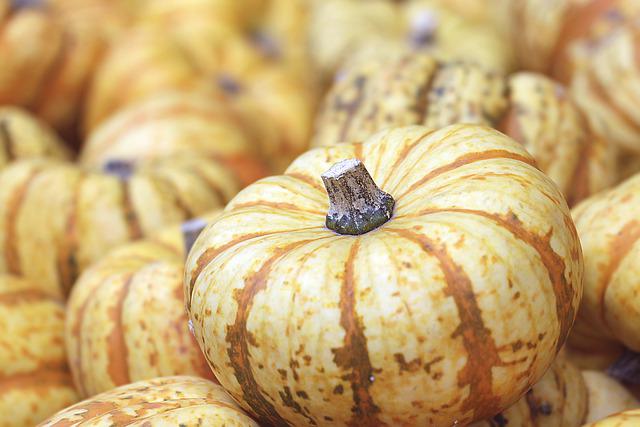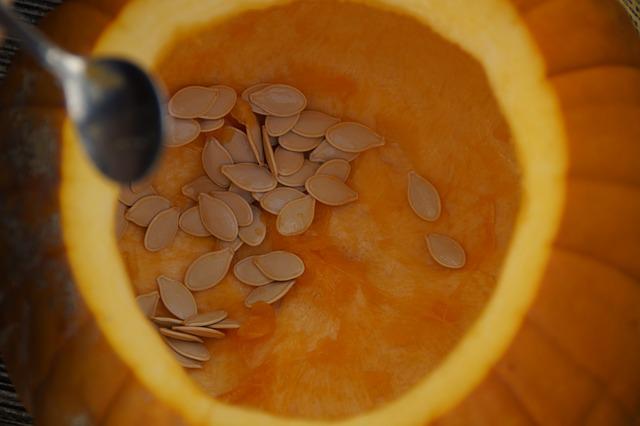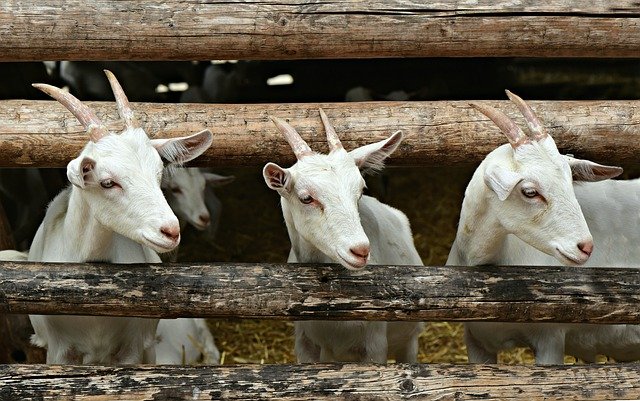Will Goats Eat Pumpkins? Here’s What You Need to Know

Goats are natural eaters and will likely consume pumpkins if they are available. However, keep an eye on your goats so they don’t damage your pumpkins or get into them while they’re eating. Also, cut the pumpkins open before you give them to the goats so they can digest their nutrients properly. Learn more here!
Table of Contents
Is Eating Pumpkins Safe for Goats?
Goats can safely eat pumpkins. However, pumpkin pulp and seeds are also excellent treats for goats. Goats can eat a pumpkin’s flesh, seeds, and skin without getting sick. Pumpkins have many vitamins and minerals your goats need; the seeds can help eliminate parasites.
What Are Parts of Pumpkins That Goats Can Eat?
Fresh Whole Pumpkin
Make sure that the pumpkins are chopped up into small pieces before you try to feed them to your pets so they don’t try to eat the whole thing and end up choking.
Pumpkin Rinds
Goats can eat pumpkin rinds! But it won’t be a hit with everyone. As long as they’re chopped into small pieces, some goats won’t be put off by the skin, but others will happily gobble it down.
Pumpkin Seeds

Goats don’t get sick from eating pumpkin seeds because it has been touted as a natural dewormer for animals, particularly for livestock like goats and sheep. Cucurbitacin, an amino acid found in cucurbits, inhibits worm infestation by paralyzing them.
However, when consumed in large amounts, this same substance acts as a herbivore deterrent and tastes bitter.
Cooked Pumpkins
Pumpkins that have been cooked are healthy and can be fed to goats. But goats shouldn’t be fed any cooked pumpkins that have been seasoned. This could be bad for them.
When cooked, the flesh and skin of a pumpkin become soft, making it easier to chew. If you save one or two pieces, they will eat them.
What Kind of Pumpkin Should Not Be Feed To Your Goat?
You need not be overly concerned about molds. These creatures are notoriously picky, and rotten pumpkins are harmful. If you feed them pumpkins with mold spores, they will pick out the healthy pumpkins and discard the rotten ones.
If a pumpkin has mold, it is best to err on caution and discard it.
Which Is Better For Goats: Raw Pumpkin or Pumpkin That Has Been Cooked?
To our good fortune, goats can consume pumpkins in raw and cooked forms. However, we strongly suggest that you feed them cooked pumpkins rather than raw ones, and the following reasons will explain why.
It is a common misconception that cooking vegetables can reduce the nutrients they contain; however, feeding cooked pumpkins to your goats is just as beneficial for their health as feeding raw pumpkins. In addition, cooking these vegetables makes both the flesh and the rind more tender, making it simpler for the person eating it to chew and digest.
What Should Be Considered When Feeding Goats Pumpkin?
To prevent bloat, add a little salt if you feed your goat pumpkin daily. Always supplement the pumpkin’s diet with alfalfa or clover to improve fiber intake. It will aid in maintaining their digestive health and preventing constipation.
Additionally, pumpkin contains a great deal of sugar. Therefore, if you give it to them frequently, you may need to add a sweet feed.
How to Feed Pumpkins to Goats
Follow this guideline to get the best results from feeding your goats pumpkin:
- Guide goats to a pumpkin patch and observe as they consume the fruit. Ideally, the pumpkin patch should be adjacent to a pasture.
- Cut large open pumpkins on the floor for them. It may be necessary to break the pods into pieces to facilitate feeding.
- Maintain vigilance over the young goats and act swiftly if choking occurs.
- If you feed them in their barns, only give them healthy pumpkins.
- Reduce the size of the fruit pieces.

Nutritional Value and Health Benefits of Feeding Goats with Pumpkin
From a nutritional standpoint, pumpkin has much to offer. These characteristics make pumpkin an excellent complement to the vitamins and minerals provided by the forage you feed your goats.
The following are some helpful hints that will describe the advantages that your goats can receive from the nutrients that are found in pumpkins:
- The fiber content of canned food is advantageous for animals with gastrointestinal distress.
- Adequate quantities of Vitamin A must be included in your goat’s diet for them to maintain healthy eyesight and skin. Their epithelial development is supported by this vitamin, which also assists them in warding off a wide variety of infectious diseases (particularly respiratory ones). In addition to this, the reproductive health of animals can be improved by vitamin A.
- It is low in calories and fat, so it will not contribute significantly to obesity.
- Like almost all other animals and birds, your goats can benefit from vitamin C because it has the same effect on their immune systems as it does on humans.
- Riboflavin also assists in the cell division processes within your animal’s body.
- Adding vitamin E to your pet’s diet provides them with beneficial antioxidants. Because it encourages children to develop strong muscles, this vitamin is even more important for children than adults.
- Your goat’s blood clotting process relies heavily on vitamin K’s participation. If they do not get enough of this vitamin in their diet, they have an increased risk of bleeding to death, even from a minor cut.
- Potassium is essential for the proper functioning of your goat’s kidneys. However, if their salt intake is high, there will be a decrease in this mineral in the nutrients they ingest, and it can become necessary for you to supplement them with potassium salts.
- Calcium is an essential mineral for your goats because it involves several critical processes for their overall health. It is essential to their enzymes’ activities, their muscles’ contraction, and the functions of their nervous and cardiovascular systems.
- Magnesium is an essential mineral for goats to have in their bodies because it assists them in metabolizing the carbohydrates and fats that come from their food.
- Phosphorus is an essential nutrient your goat needs because it forms bones, teeth, and cartilage. It helps maintain even muscle tone within the body and aids in the repair process of muscles after a workout.
- Iron is required to transport oxygen throughout your pet’s blood and, consequently, for the body to continue the process of cellular respiration.
- Zinc benefits your pets for two reasons: it can help manage stress and is also required for synthesizing proteins.
- The majority of pumpkin is water. This is beneficial for these animals. Even though they are adept at balancing their body fluids, they can become dangerously dehydrated if they lose only 10 percent of their body water. Therefore, you should always provide your goats with ample clean water.
- Last but not least, the flesh of pumpkins is believed to contain a high concentration of anti-parasitic properties. This means consuming these vegetables can protect your goats from parasitic infections.
